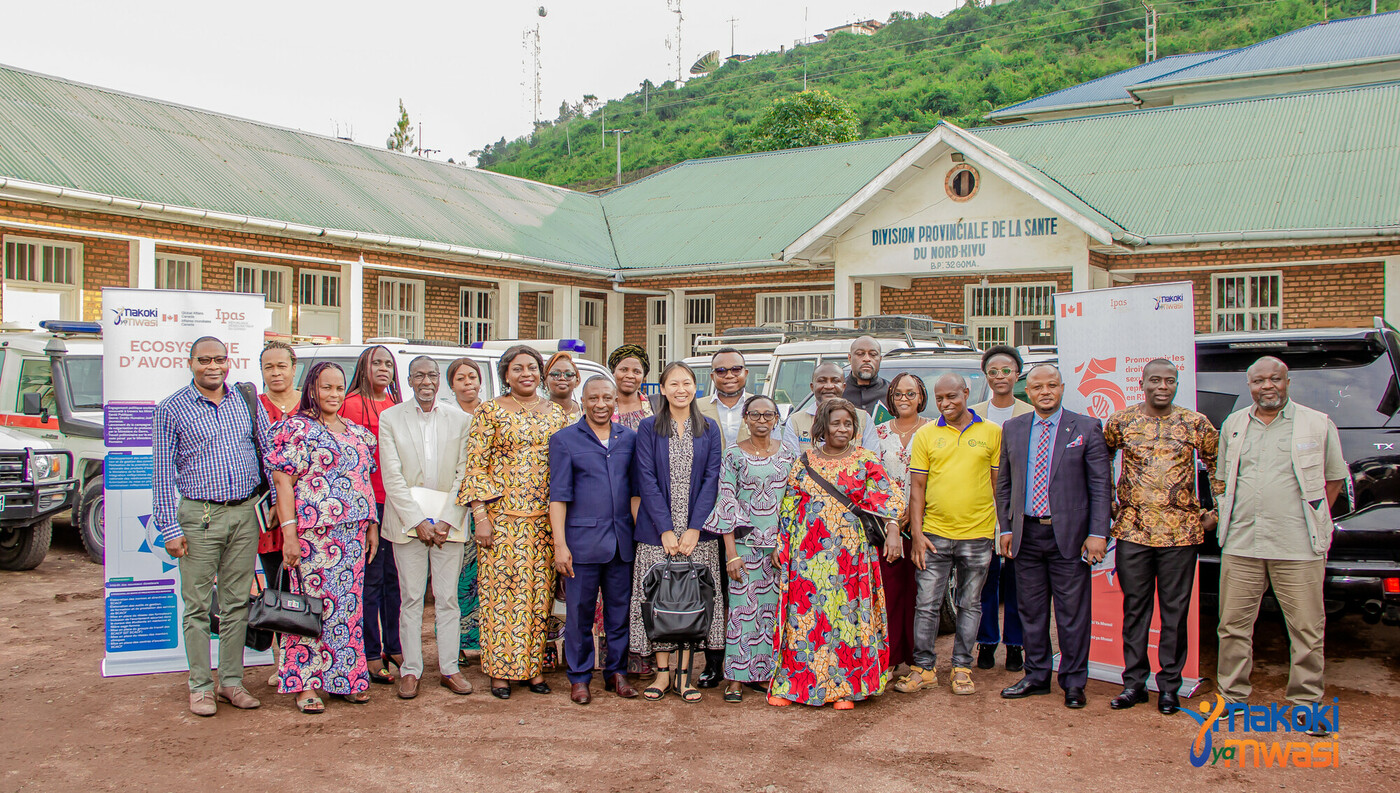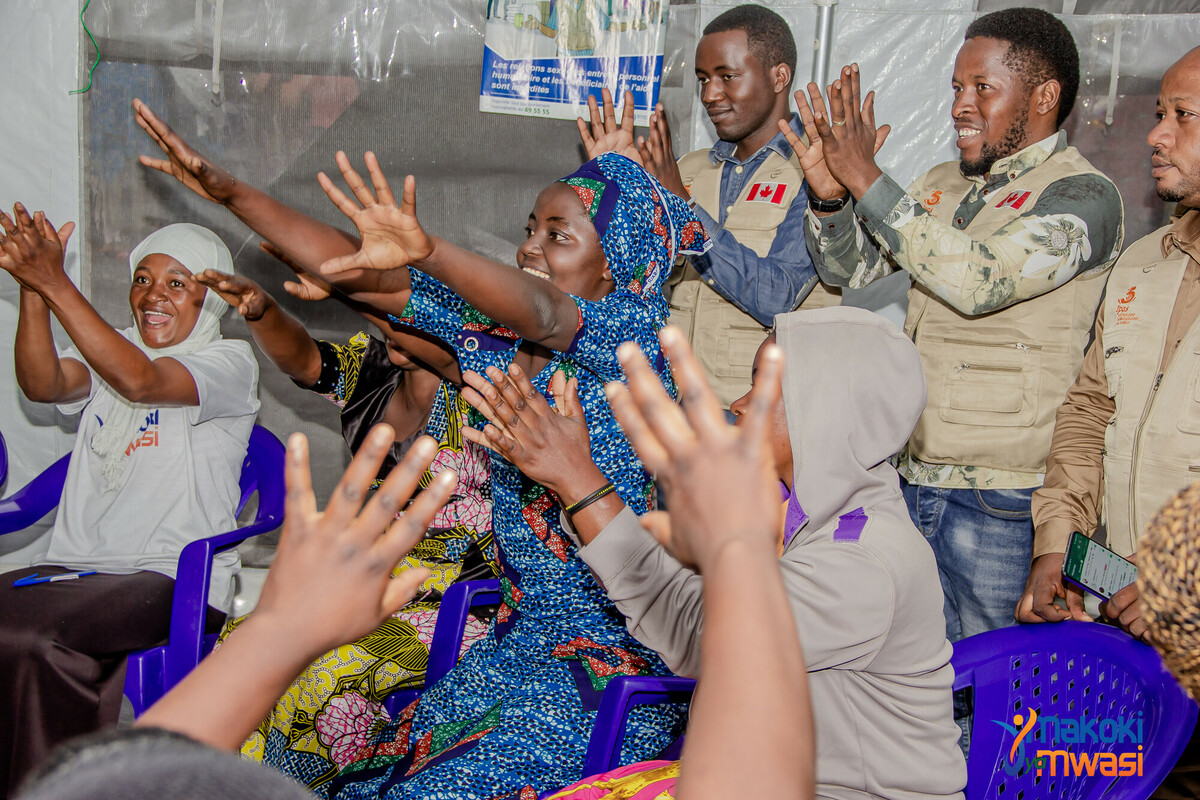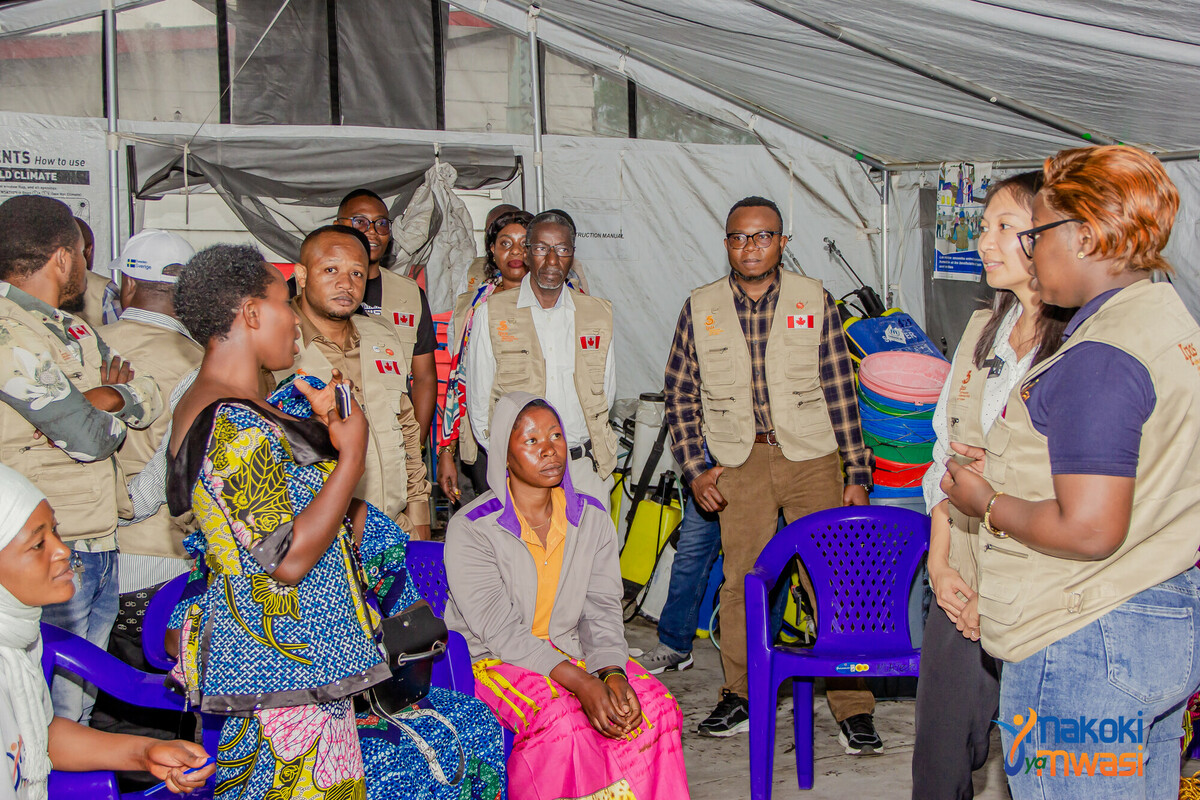Access to safe and legal abortion and contraception improves the health of women and girls and represents a fundamental human right. The ability to decide if and when to become pregnant is a symbol of reproductive justice and gender equality.
In the Democratic Republic of Congo (DRC), the publication of the Maputo Protocol in the official gazette has been followed by other milestones, such as the publication of a circular guaranteeing access to abortion care in line with the Protocol’s indications and the Ministry of Public Health’s adherence in 2020 to the evolving standards and directives relating to the application of the Protocol’s guidelines. All these actions made DRC the first country in French-speaking Africa to have implemented far-reaching changes promoting wider access to abortion care.
Despite this progress and the legal framework authorizing safe abortion in the DRC, women and girls are often unable to access the services they need due to health system limitations, harmful social norms, and lack of knowledge about sexual and reproductive health and rights (SRHR). Indeed, stigma and limited access to sexual and reproductive health (SRH) information and services expose women to unwanted pregnancies and unsafe abortion methods. Unwanted pregnancies lead to high drop-out rates from secondary school and university, and limit women’s employability and career advancement.
This is why, in an effort to promote the bodily autonomy of women and girls, Ipas DRC and Global Affairs Canada have been working together for the past 5 years to expand access to information on SRHR and to safe abortion care. Covering North Kivu, South Kivu, Haut Katanga, Tanganyika and Kinshasa, this project aims to improve women’s ability to make safe reproductive choices that support their educational and professional goals, thus contributing to greater gender equality in the DRC.

Towards greater access to safe, woman-centered abortion services
Ipas DRC collaborates with the Ministry of Health, Hygiene, and Prevention to improve access to safe, woman-centered abortion services for women and girls in the DRC. At the heart of this Canadian-funded project is the rehabilitation of health facilities, intending to strengthen the technical capacity of public health centers to integrate abortion services and care for survivors of sexual and gender-based violence (SGBV). In addition, to improve the quality of care, Ipas DRC is supporting the National Program for Reproductive Health in training and supporting healthcare providers in the public and private sectors to offer abortion care.
“The maternity clinic in Kintambo, in collaboration with the local health authorities, is literally saving lives. Healthcare providers told me about a young girl who had been raped and was thinking of having an unsafe abortion until she heard about this clinic. Today, she’s alive, well and studying at university. This is what Canada’s support for the sexual and reproductive health of women and young people in the DRC looks like,” says Anita Vandenbeld, Parliamentary Secretary to the Minister of International Development for Canada, during her 2024 January visit to the Center of Excellence at the Kintambo Maternity Hospital in the city-province of Kinshasa.
Over the past year, Ipas DRC has also been working with local partners, as well as the National Program for Reproductive Health, to provide healthcare for gender-based violence and sexually transmitted infections, comprehensive abortion care and contraceptive services through mobile clinics in camps for internally displaced people (IDP). This integrated approach, therefore, aims to provide women and girls in IDP camps with sexual and reproductive health care.
“With the humanitarian context, many women are raped, which is why the mobile clinic set up by Ipas DRC offers women and girls sexual and reproductive health care, including family planning, safe abortion services, and treatment of sexually transmitted infections,” explains Dr. Mike Mpoyi, Program Manager for Ipas DRC.

Changing social norms on abortion
In the DRC, gender norms disadvantage women in many aspects of their lives, including the expression of their rights, particularly their sexual and reproductive rights, and their right to bodily autonomy; gender inequality, exacerbated by poverty and instability, encourages and normalizes violence against women. Added to this, the stigma surrounding abortion plays a central role in the social, medical and legal marginalization of abortion care, and is at the root of the high number of avoidable deaths and sequelae due to unsafe abortion in the DRC.
Whether in the capital Kinshasa or in the provinces, in order to reduce the stigma surrounding abortion and improve access to safe abortion care, Ipas works not only with the health system but also with the community through community organizations, in particular youth-led and women-led organizations, to strengthen health referral pathways for abortion and sexual and gender-based violence (SGBV) care through the training of community health workers and peer educators.
As Anita Vandenbeld said, “These young people and members of vulnerable groups are such an inspiration! They are doing vital work in communities to increase access to sexual and reproductive health services as part of the Ipas DRC project funded by Canada.”
The Canadian Embassy’s delegation to the DRC not only visited the mobile clinic set up by Ipas and local partners but also took part in educational talks on reducing the stigma surrounding abortion in the Bulengo camp for displaced persons.
Through community dialogues and awareness-raising campaigns run by local organizations in the community, Ipas DRC improves access to reliable information on sexual and reproductive health, fosters open dialogue and raises men’s awareness of their role in promoting the sexual and reproductive health rights of women and girls. This was also the point in the visit of the Canadian delegation when they met with youth-led organizations in Kinshasa as well as in Goma and discussed challenges faced by YouthSprint network organizations in furthering their vision of empowering women over their sexual and reproductive health. As Dr. Celestine Buyibuyi, Ipas DRC Community Involvement Manager for the Eastern region says: “It is imperative to popularize the Maputo Protocol. One woman in four is raped in the IDP camp, and most of them end up with unwanted pregnancies. Some of them resort to unsafe abortions because they are unaware of their rights and fear rejection by the community.”

“After taking part in the community dialogues involving men and women, I leave with an image of people who are open to discussion, who exchange ideas with a desire to support women in their decisions. The Congolese population can count on Canada’s unfailing support in providing sexual and reproductive health care services.”
-Olivia Tran, Cooperation Officer for Global Affairs Canada


